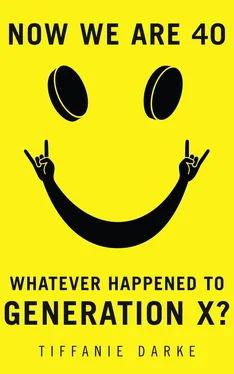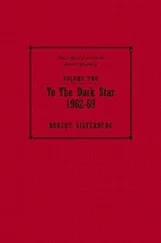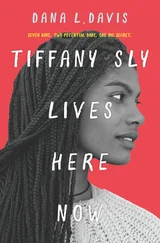1 ...6 7 8 10 11 12 ...15 When June came out of hospital, Soul II Soul took her under their wing and got her a job at Kiss FM. ‘It was when Kiss had just become legal and they had all of the cool DJs from the illegal days – Trevor Nelson, Judge Jules, all those guys. I started working with them, going to Ibiza and Manumission. It was crazy, I used to go out dancing Thursday, Friday, Saturday, Sunday, out till 4 am and still manage to get to work on Monday!’
Kiss was the platform for all the new music coming through, breaking acts like Jamiroquai and providing a platform for labels like Acid Jazz (set up by Gilles Peterson to promote the music he found to play in the back room in Paul Oakenfold’s club). ‘The tide had changed,’ says June. ‘Kiss was a legal radio station playing the kinds of music our generation wanted to listen to. It went on to completely change the content of Radio One, and that brought cool into the mainstream.’
Scenes were taking off in Manchester and Liverpool too. Down in Bristol the Wild Bunch sound system birthed Massive Attack, Tricky and Bristol’s trip hop scene. Nellee Hooper moved to London and became a producer for Madonna and U2. Meanwhile Bristol University was bringing in a bunch of white kids from privileged backgrounds and mixing it all up. Ben Elliot, the Etonian who went on to found the luxury concierge company Quintessentially, got his first taste of clubbing in Bristol. Before he went up, he was working at the Independent ; Massive Attack had just released Blue Lines and a copy had come in for review.
‘The Independent was brilliant at that point. Their Saturday Review magazine was running all these great, edgy black and white photos, reflecting a lot of what was going on. When Blue Lines came in I remember thinking, “That looks cool,” and nicking it and thinking it was incredible. Then I arrived in Bristol. Even though I went there with no friends, because of this scene I suddenly met masses of different people. I met a huge Pakistani guy from Somerset who sells furniture now. Another guy was a mature student who was really in with 3D and Tricky. I began to put on club nights and we’d get Daddy G [of Massive Attack] to come and DJ. I think at one stage I even had a pair of silver trousers. There were shops on Park Street in Bristol where everyone would go to get kitted up for Friday or Saturday night.’
It didn’t take long to spread north. ‘When I was 16 and growing up in Wakefield I remember going out to the local club, where they played terrible music – Stock Aitken Waterman,’ says Richard Reed. ‘Everyone got really drunk and I remember seeing this guy getting a glass smashed in his face. Later that night I saw the same guy in a kebab shop, still with the blood running down his face. It was dripping into his kebab, and he was eating it. No one was having any fun, it was all drunken aggression. A year later I went out again and the music had changed, everything had changed. Everyone was happy – smiles on their faces, hands in the air. House music had ushered in some kind of difference.’
The son of a nurse and a bus conductor, Reed was surprised when his school suggested he apply for Cambridge University. ‘I wanted to go to Nottingham because that was where all the best clubs and DJs were. I thought Cambridge was going to be full of posh people talking about rugby. I got to Cambridge and guess what? It was full of rugby blokes singing rugby songs, listening to terrible music. Everything I feared. I thought, we need a bit of house music here. I met Adam, from London, who loved the acid jazz scene, and this guy John and us started to put on house music nights. We realised we were having more fun organising them than the people who were queuing and paying to come in – at that point we realised we’ve got something here, this is what we should do.’ The three of them still work together today.
This time in our lives taught us influence can lie with the individual rather than the organisation. It empowered us, made us question the establishment. ‘The Criminal Justice Bill and the Poll Tax riots made everyone realise you can’t keep on telling us what to do,’ says Reed. ‘We can be subversive, question the status quo, do things differently from the way they have been done before. The Nineties roughed things up a bit – you couldn’t go out and dance all night in strict fashion, you needed to be comfortable in trainers. There was a bit of darkness going on with the political unrest and that helped people question things and reject the choice architecture.’
Cool, which we got from music, fed into fashion, film and everything else that sprang out of that scene. Cool was our possession, we loved it, nurtured it, crafted it. ‘Contrived it, yes, but that’s because we actually considered it,’ says June. ‘We cared. It didn’t matter what music scene it was, whether it was Indie, Blur or acid jazz, all of them were cool. You just wanted to be part of them, didn’t you? I wanted to be friends with Oasis and Meg and all that lot, they were just so fricking cool. Still are!
‘I think the legacy of that cool is, our generation will be forever young. My mother was late thirties, forties, at that time, which was like an old woman. Whereas we will be like this for another 20 years. I don’t think that’s the same for the younger ones. I think we’re going to catch up. When we’re 60 and they’re 40, I don’t think there’ll be much difference at all!
‘Also we monetised cool, exploited it, which is a good thing because for so many years interesting artists have been broke. Thank goodness the Damien Hirsts and Tracy Emins made loads of money. Great, why not? But at the same time, it meant that we lost some of the really important changes. And one of them for sure is making politics interesting for a disengaged group.’
With cool comes irony, and in the end irony is a great dehabilitator of progress. Irony eventually means you believe in nothing – it leads to nihilism. Maybe the reason we dropped the ball politically is because we couldn’t take anything seriously – even ourselves – in the end. The political denouement to all of this was starkly illustrated in the Brexit vote. The inclusive, liberal, multicultural society we thought we had built was rejected by just over half the country. Brexit was a shout from those whom this society did not benefit – or who did not understand its benefits. Those for whom multiculturalism was not a benevolent positive force; for whom the metropolitan acceleration was too fast and too self-oriented; whose sense of nostalgia and nationalism extended back to before this time. There’s a job to do now, to bring those two halves together, and a lesson for Generation X that when cool becomes too exclusive, it writes itself out of the system.
But politics aside, we had learned a lot from the dance music revolution – it was time to make a living out of what we had learned.
3
Just Be Good to Me: How Business Became Sexy
Like many X-ers I had no vocation. In 1993, when I left university, I had no clue what I was going to do. The idea that you dedicated your life to a company or institution then retired on a nice, big, final salary pension was being knocked out of the park – my friends’ parents were being laid off all over and there were chilling tales of suicides in the papers. The professions were unattractive to me – law looked boring, medicine was what my dad did. As I drifted about, I thought that probably the most suitable ambition was to try as many things as I could in order to build up as rich an experience of life as possible. Experience, after all, was far more interesting than money.
I wasn’t afraid of work – I had a Saturday job in a sweet shop from the age of 14, I waitressed all the way through my university days to pay my debts, I thought nothing of double shifts to save up for a holiday. X-ers are not shirkers – in fact I often curse myself for such a Protestant work ethic; it is uncomfortably at odds with a life of travel and a fondness for high-octane leisure.
Читать дальше












